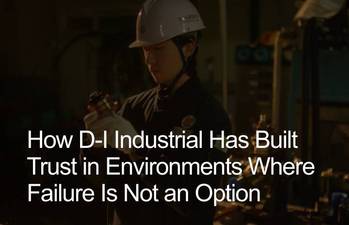In the Search for Ship Energy Efficiency, Don't Forget Waste Heat
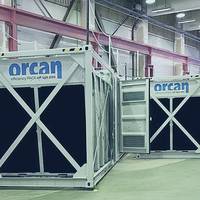
Fuel-agnostic and suitable for newbuilds and retrofit, Organic Rankine Cycle waste heat recovery systems are making headway as an energy-efficiency measure.Market prospects are looking so good for waste heat recovery systems that Orcan Energy recently expanded its industry relationships by partnering with Goltens on installations.Andreas Sichert, CEO of Orcan Energy, said: “Waste heat recovery is one of the most powerful and underutilized tools for improving energy efficiency.
Maersk Retrofits Green Technology on Time-Chartered Fleet

In a large-scale program involving 50 different shipowners, A.P. Moller - Maersk is retrofitting around 200 vessels in its time-chartered fleet. The main aim of the program is to reduce the slot cost by improving fuel efficiency and cargo-carrying capacity leading to a decrease in both cost and greenhouse gas emissions.“Our medium- and long-term chartered fleet makes up a significant proportion of our operations as well as of our total fuel consumption. By working closely with our partners…
Time to Rethink SFOC as a Fuel Efficiency Measure

The maritime sector’s longstanding reliance on Specific Fuel Oil Consumption (SFOC) and manufacturer power curves to measure fuel efficiency masks real performance as well as real inefficiencies at sea, according to Rob Mortimer, CEO of Fuelre4m:These legacy metrics, rooted in idealized factory conditions and theoretical assumptions, fail to capture the complexities of actual vessel operation. This results in an industry managing appearances rather than actual fuel-to-thrust efficiency…
GCMD and INTERCARGO Partner on Decarbonization
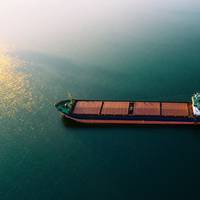
The Global Centre for Maritime Decarbonisation (GCMD) and the International Association of Dry Cargo Shipowners (INTERCARGO) have signed a two-year partnership to accelerate decarbonization efforts in the dry bulk segment.Bulk carriers account for 42.7% of the world’s oceangoing fleet by deadweight tonnage (dwt) and present unique decarbonization challenges, particularly for small and medium-sized owners operating unpredictable tramp trades.Whilst the industry works to scale low carbon fuel availability and ready ports for their handling and bunkering…
You Want to Save the Planet? Change your Ships Light Bulbs, Keep a Clean Hull
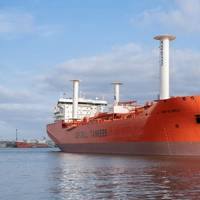
Norwegian shipowners agree: the obsession with new fuels is eliding a valuable discussion of the potential of fuel efficiency. The Aurora-class has enabled Höegh Autoliners to reduce emissions by around 58% per car carried, “before we even use low carbon fuels,” CEO Andreas Enger said. “The debate between energy efficiency and the fuel transition, we consider to be irrelevant and pretty stupid,” he said. “It’s a no-brainer for a shipowner to do everything they can to reduce fuel consumption.“Fuel efficiency itself will yield substantial improvements…
Wattlab SolarDeck: Solar Power for Ships at Sea
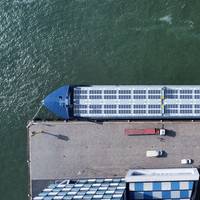
Wattlab introduced its SolarDeck - a modular and scalable system of deck-mounted solar panels that is designed to yield "significant reductions" in fuel consumption and CO2 emissions - for the seagoing shipping industry, with an expected ROI of 3-5 years.Established in 2017, Wattlab has spent its first years of operations focusing on the inland shipping sector with its Solar Flatrack, a modular solar energy system consisting of movable and stackable integrated solar panels and inverters.
BP to slash over 5% of workforce
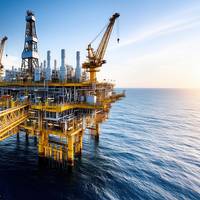
BP will cut over 5% of its global workforce, it said on Thursday, as part of CEO Murray Auchincloss' efforts to reduce costs and rebuild investor confidence in the energy giant.Around 4,700 employees and 3,000 contractor positions will be cut this year, BP BP.L told Reuters. The cuts were announced in an internal memo seen by Reuters earlier on Thursday.BP shares were up 1% at 1200 GMT.Auchincloss last year said he would cut the British company's costs by at least $2 billion by…
New Propeller Coating for Eastern Pacific Shipping Fleet
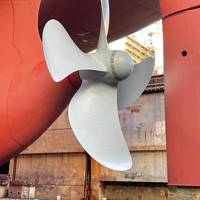
Eastern Pacific Shipping (EPS) is introducing Graphite Innovation & Technologies’ graphene-based, biocide-free propeller coating across its fleet after positive results on an LPG tanker.Graphite Innovation & Technologies (GIT) says the eco-friendly, highly durable, and ultra-low friction foul release coating, XGIT-PROP, is an effective way to improve and maintain the vessels’ CII ratings over the drydocking cycle.The coating is a three-layer graphene-based coating technology that is specifically designed to withstand harsh operational conditions and reduce the need for propeller polishing.
AiP for Aurelia's Bulk Carrier "Green Retrofit" Solution
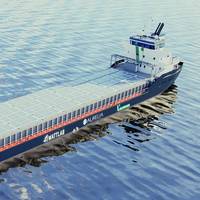
RINA awarded an Approval in Principle (AiP) for a green retrofit package solution designed by Aurelia, in partnership with Econowind, Wattlab and Vertom, aimed to meet CO2 reduction targets in compliance with CII. The retrofit package can be applied to almost any kind of vessel and incorporates rigid sails, solar panels, batteries, optimized weather-routing, and a smart decision support system developed by Hydrographic and Marine Consultants (HMC) to dramatically reduce emissions of an existing Newcastlemax bulk carrier.
Energy Efficiency Indices: What You Need to Know

Decarbonization is the greatest challenge facing the shipping industry today.The effort to reduce emissions and environmental impact extends to all sectors and players and will leave no one in the industry unaffected.The IMO’s effort to decarbonise shipping is a numbers game. The goal, as stipulated in the Initial IMO GHG Strategy, is to reduce the average CO2 emissions per transport work by at least 40% by 2030, compared to 2008 levels., and to pursue a 70% reduction by 2050.The introduction of the EEXI is part of the IMO’s latest attempt to achieve this goal.



